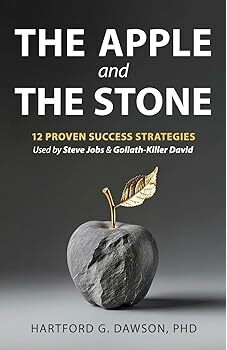

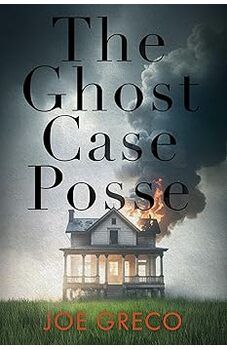
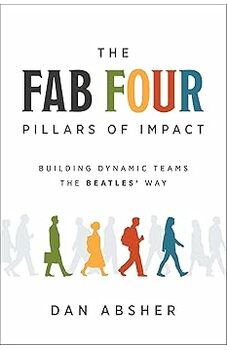

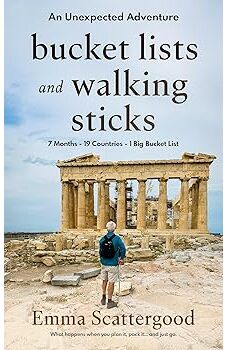
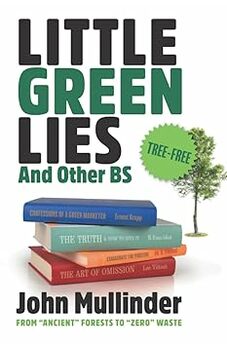
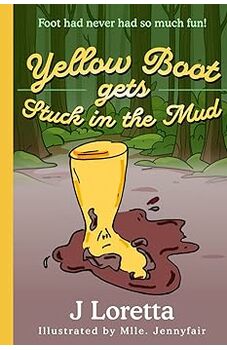
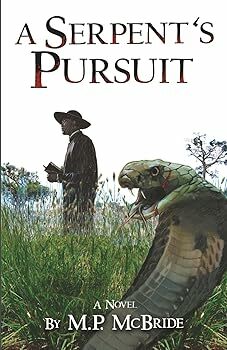
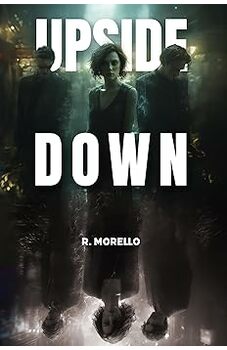
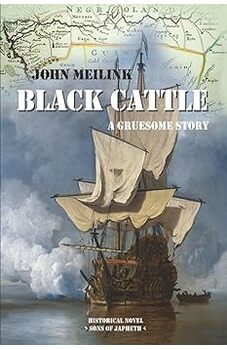
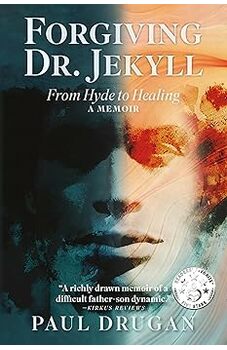
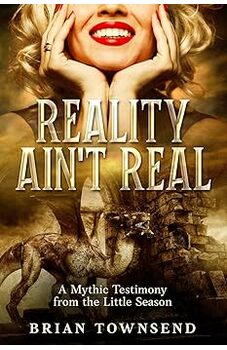
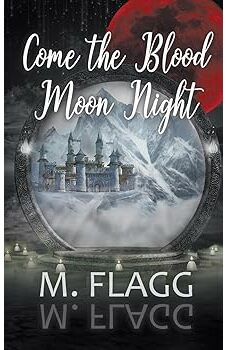
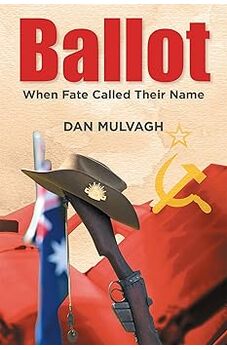

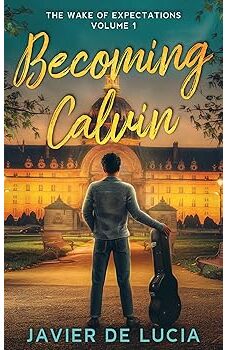

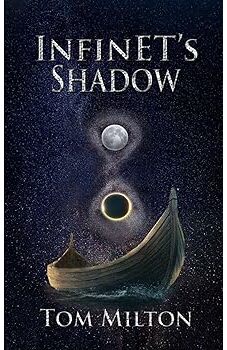
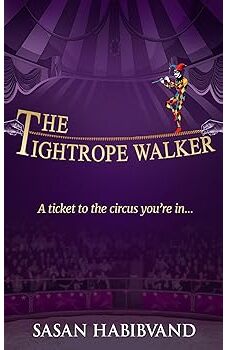



 This author participates in the Readers' Favorite Free Book Program, which is open to all readers and is completely free. The author will provide you with a free copy of their book in exchange for an honest review. You and the author will discuss what sites you will post your review to and what kind of copy of the book you would like to receive (eBook, PDF, Word, paperback, etc.). To begin, click the purple email icon to send this author a private email.
This author participates in the Readers' Favorite Free Book Program, which is open to all readers and is completely free. The author will provide you with a free copy of their book in exchange for an honest review. You and the author will discuss what sites you will post your review to and what kind of copy of the book you would like to receive (eBook, PDF, Word, paperback, etc.). To begin, click the purple email icon to send this author a private email.
An award-wining handbook for fiction story tellers of an genre with coverage of the major diceiplines in fiction writing. Writen succinctly with all the details necessary for comrehension as is common the four non-fiction on creative writing of fiction by William H Coles.
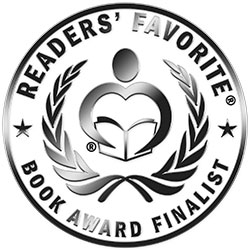
Reviewed by Emily-Jane Hills Orford for Readers' Favorite
What is literary fiction? And what makes it different from memoirs or genre fiction? Literary fiction is something that will stand the course of time; it will make a bold statement and allow the individual reader to grow in his or her experience merely by reading the story. Basically, literary fiction is a complex work of art, something to be savored, studied and analyzed. So, how does one write literary fiction? It must be assumed that any writer can write a good story, but is it literary fiction? Does it have the potential of becoming literary fiction? There are many elements essential in the creation of a good piece of literary fiction. First of all, characterization is important. “The author who wants to create great stories must characterize well.” The characters give the story focus, meaning, direction and so much more. And that, in the art of literary fiction, is what makes it. In effect, “Meaning and purpose are crucial.”
Author William H. Coles’ Creating Literary Stories: A Fiction Writer’s Guide is a powerful tool to help writers, both beginners and established, to create their great work of literary fiction. Starting with a discussion and comparison of literary fiction versus memoir or genre fiction, the author proceeds to outline the important elements of a good work of literary fiction. Step-by-step, he leads the reader through the complexities of characterization, narration, dialogue, conflict, point of view and so much more. Using examples from classic literature, each important element is explained and compared to help the reader comprehend the complexities of the story’s structure. This is a must-have guide for all writers. Well written and laid out, this is an interesting read.
Many would-be fiction writers have sat before their computers, staring perplexed at the sea of words before them, utterly stumped at why the words that form the sentences, and the sentences that form the paragraphs, simply don’t work. Creating Literary Stories: A Fiction Writer’s Guide, by William H. Coles, would undoubtedly have shed some light on their respective dilemmas. Coles goes about demystifying and dissecting the fundamental elements of literary fiction writing in Book One with sections on character, narration, dialogue, conflict, humor, writing in scene, the first person point of view (POV), time, second-person narration and, perhaps the most important element of all, why literary stories fail. While the first section of Creating Literary Stories is about the fundamental elements in literary fiction, Book Two is more about the creation of the actual story. Coles covers the fundamentals of telling a story, the essentials of literary story writing and how a story comes to life and, finally, some thoughts on the all-important revisions.
Coles’ voice is candid and his approach totally relatable, thanks to plenty of writing samples from different perspectives in order to illustrate his points. References to timeless favorites, like Little Red Riding Hood to emphasize the importance of character, as well as to famous Shakespearean soliloquies and classics like Wuthering Heights, show not only an appreciation for a wide range of writing styles but also an awareness as to their unique elements that make them endure over time. The author clearly knows what he’s talking about: “Involving the reader is essential for story success. The reader should not feel like a mere observer, but like a part of things through emotional involvement with the characters and the drama of the story.” Most authors have a facility with language. However, that in itself does not make for the ability to write captivating fiction. Oftentimes, it takes a combination of dexterity with words and applying the fundamental elements so important to fiction writing to create a story writers would be proud to call their own. Coles gives writers those invaluable tools in Creating Literary Stories: A Fiction Writer’s Guide.
Creating Literary Stories by William H Coles is a detailed and comprehensive guide and a must for any writer. Unlike many other books on the subject, this guide tackles often overlooked areas such as the development of strong characters and plot in far more detail. You will learn to understand the importance of dialogue that propels the story forward and build characters that readers can relate to on an emotional level. Discover the myths to writing fiction and guidelines to sharpen your skills in structuring characters, plots, narration, and writing memorable and current humor stories plus much more. Learn the various types of conflicts that are essential to any novel, including when and how to include them. Uncover the traps that many writers fall into and techniques that will give your stories that professional edge. Finally, discover your unique writing style that will engage your reader and wow them with your storytelling ability.
As a writer myself, I have read many guides on the art of fiction writing, but I have to say I have never come across a guide as comprehensive as this one. The author has covered every subject on the art of writing plus many areas that I have never seen in other books. I especially thought the section on how effective changing one word in your narrative could be to completely transform the emotions behind the dialogue. The guidelines in section two are invaluable for the planning stage of your novel, the second draft, or when you are simply lost on ways to improve the overall polish of your story. The revision chapter at the end is undoubtedly the most helpful for me, covering the main principles you need to be aware of. I would also recommend any aspiring novelist check out the author's website for even more helpful articles which will build your creativeness and skills.
I decided to read Creating Literary Stories: A Fiction Writer's Guide by William H. Coles because I am a writer and I’m always trying to work on and improve my craft. I have four books published, but I always want to improve, I always want to write more, and better. I have taken courses and read books but, to be honest, not recently. I hoped I would get some new ideas and a new perspective from reading William H. Coles's book. I looked him up and he has a lot of books on writing, as well as a website dedicated to helping writers improve their skills. I had high expectations as I began reading Creating Literary Stories: A Fiction Writer's Guide and I am pleased to say, those expectations were met and even exceeded. I don’t know what the practical result will be as I just finished the book. All I can tell you is that I learned a lot and I’m eager to start putting it into practice.
Creating Literary Stories: A Fiction Writer's Guide is a very well-organized book. It’s short so I suggest you read the whole book and not skip around reading only what you think you might need. I think most writers need it all. Especially beginners who might be trying to find their voice. Start at the beginning. The Literary Fictional Story is a great chapter. It defines fiction and literature and the various components that make these concepts powerful and meaningful. I found every chapter relevant to my journey as a writer. Several chapters, like the ones on revision, character in a literary fictional story, and the fundamentals of telling a literary story really spoke to areas of my writing that I especially feel need improvement. William H. Coles's writing style is easy to understand. You feel as if the teacher is in the room with you.
From award-winning author, William H Coles comes Creating Literary Stories: A Fiction Writer's Guide. Ever dreamed of being a fiction writer? Tried your hand at it but just can't figure out where you are going wrong? Then this guide may be just what you are looking for. This is a no-nonsense, to the point guide that leads you by the hand through the ins and outs of writing a great literary novel. Learn the structure, how to build up your characters, narration, and dialog. Learn how to get your point of view right, how to add drama and action to your story and a bit of humor where necessary. Most of all, learn how to revise, revise and revise again until you get it right.
Creating Literary Stories: A Fiction Writer’s Guide by William H Coles is a great guide for anyone thinking of starting out as a fiction writer or who has started but has become stuck. It really is a no-nonsense guide, written in a way that is incredibly easy to read. Where some books about fiction writing seem to ramble, this one doesn’t. It gets right to the heart of the matter, each chapter about a different part of writing, and there are plenty of examples on what you should and shouldn’t do. It is a short guide but you will learn more from this than wading through a book four times its size on the same subject. It doesn’t promise to make you a great fiction writer right off the bat – that’s down to you – but it does give you the grounding you need to take you forward. If you are intending to write fiction, read this guide and then keep it beside you at all times. You will refer back to it more than once.
Creating Literary Stories: A Fiction Writer's Guide by William H Coles is an informative guide for both beginners and seasoned writers who want to learn more about how to write engaging fiction. It is divided into two sections. The first section examines aspects of fiction writing such as character development, creation of dialogue, selecting the appropriate point of view for your story and other features. In the second section, the book delves into the foundational aspects of writing a literary fiction story that can stand the test of time. Definitions of applicable terms are also included at the beginning as well as examples that explain the points.
The writing in Creating Literary Stories: A Fiction Writer's Guide by William H Coles is accessible to a wide range of readers, regardless of their experience. The illustrations it contains help clarify the points raised in the book. Sections are clearly labeled and explained. The work is short but explores many aspects of fiction writing. Most importantly, the ideas suggested can be easily applied by any writer in their work. As I am working on my first novel, I found many insightful guidelines on creating an appealing and captivating story that I can implement in my work. The works of renowned authors are also studied to analyze the features that make their writing stand out. Creating Literary Stories: A Fiction Writer's Guide by William H Coles is an enlightening guide for any reader who wants to develop their fiction writing skills.
Creating Literary Stories: A Fiction Writer's Guide by William H Coles is a non-fiction writing manual for those who are interested in improving their craft as authors. Whether it is flash fiction, short stories, or any length of novel, Coles outlines the foundational groundwork and then builds up through the process of a tale's construction in order to assist a writer with the fundamentals of successful story writing, as well as explaining why each component is necessary. Spread over two sections (or books, both within the single volume) and seventeen individual chapters ranging from point of view, scene writing, and time to bringing a story to life and continuous revisions, Coles offers up a wealth of knowledge with insightful and direct instruction.
Creating Literary Stories is wonderful in its succinct composition and, as a prolific author himself, William H Coles delivers from a platform of extensive experience and education on the subject matter. I read more books per year than most might in five, wishing that some might have had even a fraction of the knowledge Coles provides in this guide. My favorite chapter was on dialogue, where the principles of advancing the story while making your characters sound authentic are at the forefront. The technicalities are just as important as the story itself. I'd recommend this book to anyone who has the desire to strengthen their skill set and home in on writing entertaining, memorable literary fiction that stands out in a sea of stories, whether you are new to the craft or have spent a lifetime filling the pages.
With more people than ever being able to embrace their inner author, learning resources, information, and guidelines are something in high demand for those wishing to hone their craft. There is a lot to understand, from the definitions of keywords to the all-important narrative and plot design. Creating Literary Stories: A Fiction Writer's Guide by William H. Coles aims to introduce topics from conception to execution.
As an author myself, I always feel the need to be constantly improving, whether that is taking the latest course, or reading a plethora of books on the topic. When I saw William H. Coles' Creating Literary Stories: A Fiction Writer's Guide, I was eager to give it a read. I was surprised to find a holistic approach to writing within such a short book. This book will provide a strong foundation for anyone seeking to emerge onto the writing scene, and also acts as a good reminder to seasoned authors of the basics and important aspects of character, narrative, and writing style. It focuses more on definition, explanation, and foundations of what can and should be used and what to avoid. For instance, the dialogue section covers how and why dialogue is used. It gives points to be considered, as well as providing examples and tips which prove useful for consideration and skill building. The end of chapter summary is a useful tool to condense the material in the chapter into its main points.
All in all, I enjoyed reading Creating Literary Stories. It is suitable more for those needing an understanding of terminology and how things are used. It is a good resource for people new to the field of writing as it cuts through the jargon and offers helpful tips. A person with writing experience under their belt already will find this lays out things they should already have a grasp on; however, refreshing your knowledge never hurts and often leads to the discovery of little gems forgotten or overlooked. This book contains information writers should be aware of, and the easy to digest segments make it easy to pick up, put down, and absorb what is being discussed.
Creating Literary Stories: A Fiction Writer's Guide is a non-fiction book on the do’s and don’ts of writing creative fiction stories. William H. Coles is himself an author of fiction stories and in this book, he talks from his own experience about what works and what doesn’t when it comes to fiction or creative writing. In this book, he discusses in detail the craft and techniques of creating stories. The topics covered in this book include character development in fiction, narration, dialogue, depicting conflict, humor, emotion, writing scenes, the importance of first-person point of view, second-person narration, the pitfalls to watch out for and some reasons why literary stories fail, how to create a literary fiction story, how to make it come to life, essentials, revision, and more. There are also examples provided within the appropriate context that really highlight these techniques and how to use them.
Creating Literary Stories: A Fiction Writer's Guide by William H. Coles is a book that I am sure any aspiring fiction writer will find handy. It is a fairly short read but provides plenty of tips and techniques for the novice or amateur writer to improve upon and hone their skills. It can also be helpful for anyone who has never written a book before but would like to be an author of literary stories. William writes in a clear, lucid style and although the book should ideally be read in sequence, I feel readers can jump around to certain topics and chapters if they want. This is a handy guide for aspiring writers.
Creating Literary Stories: A Fiction Writer's Guide by William H Coles is a non-fiction book to help writers write their stories. He explains what they need and how to do it. He uses examples to help explain his points. Not only does he explain grammar, but he discusses and shows what makes a good sentence. He also talks about writing an outline and why you need one. There is a blank page at the end for note-taking.
I thought that Creating Literary Stories by William H Coles was extremely helpful for writers. I loved that he gave examples. He shows what works vs. what doesn’t work, and that made it so much easier to understand. I liked that it was not just about grammar; you learn other things such as what makes a good character. That was refreshing because most writing books are just about grammar. I also liked how he divided the book; it made it easier to understand. The blank page for note-taking was a nice touch.
William H Coles did a wonderful job explaining things without making you seem stupid. The way he gave the definitions was nice; it was easy to read and understand. It is a great book to keep on hand if you need help with writing something, such as how to describe your character - you can just go back to that section and it will give you some ideas. If you are a writer of literary fiction or are wanting to be one, then you should definitely check this book out.
William H. Coles has written Creating Literary Stories as a handbook for writers both new and experienced. The volume is jam-packed with definitions, how-to’s, and how-not-to’s, with many examples of both. The first half is a discussion of the qualities that define literary fiction as opposed to autobiography, biography, memoir, and genre-pieces such as horror, romance, and mystery. A principal difference between literary fiction and genre fiction is that the former is unpredictable and real, the latter predictable and sentimental. Mr. Coles cites examples from classic pieces of what might be referred to as the Literary Canon, though he does not use that term. He is addressing artists who want to achieve such heights. He divides the topics clearly among the tools writers use to create stories: plot, character, setting, dialogue, humor, action, point of view, pace, simile, and metaphor, to name a few, all the while pointing out what works and what doesn’t. The second part of the book is a manual of how to actually write a great story, impressing us with the need to please our reader— “for readers seeking enjoyment from perfectly crafted stories as an art form.” And he separates literary fiction from genre fiction by saying the former’s emotional complexity and superior writing quality distinguish it from the latter.
What I liked most about William H. Coles’s approach is his dedication to fiction as an “art.” In this marvelous time of independent publishing, where anyone and his or her proverbial brother and sister can publish their books, quality be damned, Mr. Cole holds to the view that some writing is better than others, and greatness is worth striving for. And he gives us the path forward, emphasizing the imaginative nature of great literary fiction, that it is made up, a creative process rather than a rendering of a personal happening in our lives dressed up as a novel. He explains how to “invent” a character, a place, and a flow of events that changes the protagonist and that enlightens readers rather than only entertains them. As an aspiring literary artist myself, the concept of our subject coming strictly from our imaginations rather than from our life experiences really made me think. Have a point to make, create—invent—characters, situations, and actions that lead to the purpose and entertain in the process. Well … he says it a lot better, and even more, he gives us the techniques needed to do the job, a job so worth doing. Whether you are an experienced writer trying to get better or someone just starting out, Creating Literary Stories should be right there by your keyboard.
Creating Literary Stories: A Fiction Writer's Guide by William H Coles is an in-depth analysis of fiction storytelling. It explores all aspects of storytelling and literary fiction writing and includes many aspects from characterization to proofreading. It is comprehensive, clear, concise, easy to read, fun to read, engaging while also being extremely demanding of the writer-to-be. Creating Literary Stories is an invaluable manual for writers but also for creative writing teachers. I actually am both and this work is truly a must for both professions.
I appreciated the definitions of essential words at the beginning of the first chapters as reminders of what we are exactly discussing as there can be so many misconceptions about literature and the creative process, as well as the quotations, in particular from Hamlet, to illustrate notions and help the reader better grasp concepts. The ideas to improve dialogue are especially interesting and include what to avoid as well as various drafts of one example. All the essentials of writing and literature are dealt with, for instance, point of view, narration, characterization, narrative distance, change, and conflict.
Revision is also comprehensively dealt with, including the questions we should ask ourselves when we want to proofread and improve our novels. To conclude this beautifully written guide, the appendix allows you to delve into the reasons why you are writing in the first place. I recommend William H Coles' Creating Literary Stories: A Fiction Writer's Guide to teachers, writers, and students as an amazing and inspirational guide!
The first part of Creating Literary Stories: A Fiction Writer’s Guide by prolific writer William H. Coles, Book One – The Literary Story in Fiction, takes us through various aspects of story writing, including characters and the narration of literary stories; dialogue; conflict and humor in literary fiction; writing in scene; and the first-person point of view. Book Two focuses on how to create a story from scratch to the final revision. For the beginner writer, and even for those who have some background in creative writing, his clear definitions and guidance should provide valuable assistance in encouraging the budding author to excel at their art. The summaries that he provides at the end of each chapter are also extremely helpful for the reader to recall the most salient points that he has exemplified throughout.
William Coles is an avid and earnest instructor, who has vast experience of the fictional milieu which he imparts with gusto and fluent ease. I really appreciated the many examples that he gives of the various elements of writing. Creating Literary Stories: A Fiction Writer’s Guide is highly readable and accessible, and clearly shows his mastery of the art. The headings that Coles supplies throughout the work are also extremely helpful in facilitating being able to pinpoint where to go in the text when one is struggling with their own writing. However, because the work reads so easily and enjoyably, I would definitely urge you to read the book through from start to finish first, as Coles has so much wise and wholesome advice to impart, and does so in such a generous manner, that you would be likely to miss out if you don’t do so.
Discover the secrets of creating captivating stories in the writing craft book, Creating Literary Stories (A Fiction Writer's Guide) by William H. Coles. In Book One, master the basics of devising stories to engage your reader by weaving spells that draw them into your world. By applying the most vital of rules and techniques, such as how to craft your characters, what narration is and how to use it, and how to use dialogue expertly, you will begin to see improvement in your writing and your audience engagement. Learn about the different points of view and how to best use them, and what makes a good story become a best-selling page-turner. Explore the fundamentals of telling a literary story, the essentials of novel writing, and more in Book Two. Are you ready to see where your writing takes you?
Creating Literary Stories (A Fiction Writer's Guide) by William H. Coles is a must-have manual for the new or aspiring novelist. By breaking down the writing process, Mr. Coles presents the essentials for outstanding writing in an easy to understand and entertaining manner. While this book is written for those wishing to write literary fiction, the content applies to all forms of novel and story writing. I was impressed with how Mr. Coles encourages writers to explore their creativity while still adhering to principal writing rules that many authors have either not learned, or simply don’t care to follow. This is a tragic fallacy, as it is the downfall of so many potentially excellent novels, leaving them mediocre at best. I have read many books on the writing craft, and this gem is now one of my favorites. I recommend this book to those that have the words but don’t know how to go about putting them on a page.
